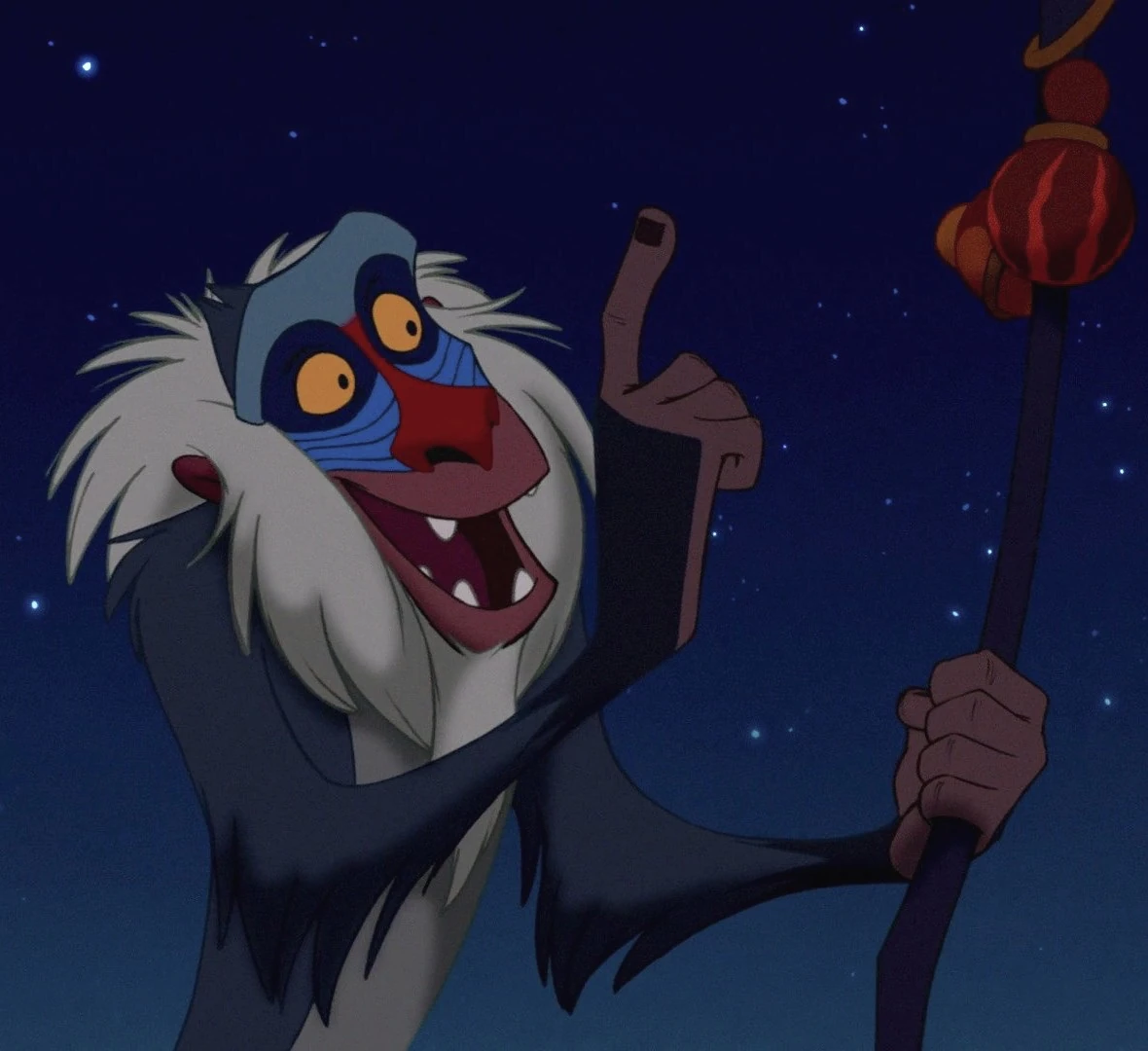What Is Rafiki? Discover The Meaning, Origin, And Significance Of Rafiki
Ever wondered what Rafiki really means? In this article, we dive deep into the world of Rafiki, exploring its cultural significance, origin, and everything in between. Rafiki is more than just a word—it’s a concept that resonates across cultures and communities. So, let’s get started and uncover the magic behind Rafiki!
Rafiki is one of those terms that carries deep meaning and emotional weight, especially if you’re familiar with African culture or Disney’s "The Lion King." But what exactly does it mean? Is it just a name, or does it carry a broader cultural significance? In this article, we’ll break it all down for you. Think of it as your ultimate guide to understanding Rafiki in its truest form.
From its linguistic roots to its modern-day applications, Rafiki has become a symbol of friendship, wisdom, and mentorship. Whether you’re a fan of animated movies or simply curious about global cultures, this article will give you a fresh perspective on what Rafiki represents. So, let’s jump right in!
Table of Contents
- The Origin of Rafiki
- What Does Rafiki Mean?
- Rafiki in African Culture
- Rafiki in The Lion King
- The Symbolism Behind Rafiki
- Modern Applications of Rafiki
- Linguistic Analysis of Rafiki
- Rafiki in Community Building
- Rafiki Organizations Around the World
- Conclusion: Why Rafiki Matters
The Origin of Rafiki
Rafiki, a word originating from the Swahili language, has roots that trace back to East Africa. Swahili, or Kiswahili, is spoken by millions across Tanzania, Kenya, Uganda, and other neighboring countries. The word "Rafiki" literally translates to "friend" or "companion" in English. But its meaning goes beyond mere translation—it embodies the essence of companionship and trust.
Interestingly, the term Rafiki gained global recognition through its use in Disney’s "The Lion King." However, its origins are deeply rooted in African traditions and values. In many African communities, the concept of Rafiki extends beyond personal relationships to encompass community bonds and mutual support.
Let’s break it down further:
- Rafiki reflects the importance of friendship in African cultures.
- It emphasizes the idea of loyalty and support among peers.
- The word has been adapted into various contexts, from literature to organizational names.
Historical Context of Rafiki
If we dive deeper into history, Rafiki has been used in various African tribes to describe close relationships. For instance, in some communities, a Rafiki is someone you trust enough to share your deepest secrets with. It’s not just about being friendly; it’s about forming a bond that withstands the test of time.
In addition, Rafiki has also been associated with mentorship. Elders in African societies often take on the role of a Rafiki, guiding younger generations through life’s challenges. This mentorship aspect adds another layer of meaning to the word, making it even more significant in cultural contexts.
What Does Rafiki Mean?
At its core, Rafiki means "friend" or "companion." But as we’ve already discussed, its meaning extends far beyond the dictionary definition. Rafiki represents a deep connection, a sense of belonging, and a commitment to mutual support. It’s about building relationships that are meaningful and lasting.
In today’s fast-paced world, where connections are often fleeting, the concept of Rafiki serves as a reminder of the importance of genuine relationships. Whether it’s a friend, family member, or even a mentor, Rafiki encourages us to cherish those who stand by us through thick and thin.
Breaking Down the Meaning
Here’s a quick breakdown of what Rafiki means:
- Friendship: A close bond between two or more people.
- Companionship: Being there for someone through life’s ups and downs.
- Mentorship: Offering guidance and wisdom to others.
- Trust: Building relationships based on honesty and reliability.
Rafiki in African Culture
In African culture, Rafiki is more than just a word—it’s a way of life. The concept of community and togetherness is deeply ingrained in African societies, and Rafiki plays a crucial role in fostering these values. From village gatherings to family rituals, the idea of having a trusted companion is celebrated and cherished.
For example, in many African tribes, young people are paired with older mentors who act as their Rafiki. These mentors provide guidance, share wisdom, and help the younger generation navigate life’s challenges. This tradition of mentorship has been passed down through generations, making Rafiki an integral part of African cultural heritage.
Cultural Practices Involving Rafiki
Here are a few cultural practices where Rafiki plays a significant role:
- Initiation Ceremonies: Young people are often introduced to their Rafiki during initiation rites.
- Community Gatherings: Rafiki relationships are strengthened through communal activities.
- Storytelling: Elders use stories to teach younger generations about the importance of friendship and trust.
Rafiki in The Lion King
Disney’s "The Lion King" brought the concept of Rafiki to a global audience. In the movie, Rafiki is a wise old baboon who acts as a mentor to Simba, the young lion prince. Through his wisdom and guidance, Rafiki helps Simba overcome his fears and embrace his destiny.
The character of Rafiki in "The Lion King" perfectly encapsulates the essence of the word. He embodies friendship, mentorship, and trust, making him a beloved character for audiences around the world. His iconic line, "Asante sana, squash banana, we we nugu, mi mi apana!" has become a symbol of African culture and humor.
Lessons from Rafiki in The Lion King
Here are a few lessons we can learn from Rafiki:
- Embrace Your Past: Rafiki teaches Simba to confront his past and learn from it.
- Trust in Yourself: He encourages Simba to believe in his own abilities.
- Seek Guidance: Rafiki shows us the importance of having a mentor in our lives.
The Symbolism Behind Rafiki
Rafiki is rich in symbolism, representing various aspects of human relationships. At its heart, it symbolizes the power of friendship and the strength that comes from having someone you can rely on. It also represents wisdom, as Rafiki often acts as a guide or mentor in both cultural and fictional contexts.
Furthermore, Rafiki symbolizes the importance of community and the interconnectedness of all living beings. In African cultures, the concept of "ubuntu" (I am because we are) is closely linked to Rafiki. Both emphasize the idea that our well-being is tied to the well-being of others.
Symbolic Representations of Rafiki
Here are a few symbolic representations of Rafiki:
- Friendship: A bond that brings people together.
- Wisdom: The knowledge and insight gained through experience.
- Community: The idea that we are all interconnected.
Modern Applications of Rafiki
In today’s world, the concept of Rafiki has found new applications in various fields. From education to business, the idea of building strong relationships and fostering trust is more relevant than ever. Many organizations and initiatives have adopted the name "Rafiki" to reflect their commitment to these values.
For instance, there are numerous Rafiki programs aimed at promoting friendship and mentorship among young people. These programs focus on building life skills, enhancing self-esteem, and creating supportive networks. By embracing the concept of Rafiki, these initiatives are making a positive impact on communities around the world.
Examples of Rafiki in Action
Here are a few examples of how Rafiki is being applied in modern contexts:
- Rafiki Youth Programs: Initiatives that connect young people with mentors.
- Rafiki Foundations: Organizations dedicated to promoting education and community development.
- Rafiki Networking Groups: Platforms for professionals to build meaningful connections.
Linguistic Analysis of Rafiki
From a linguistic perspective, Rafiki is a fascinating word. Its Swahili roots give it a unique sound and meaning that resonate with people across cultures. The word itself is composed of two parts: "ra" meaning "friend" and "fiki" meaning "here." Together, they create a sense of presence and connection.
Linguists have noted that Rafiki shares similarities with other words in the Bantu language family, which includes Swahili. These words often emphasize relationships and community, reflecting the values of African cultures. By studying Rafiki, we gain insight into the linguistic and cultural heritage of East Africa.
Language and Culture
Here’s how language and culture intersect in the case of Rafiki:
- Language as a Reflection of Values: Words like Rafiki reveal the importance of relationships in African cultures.
- Cultural Exchange Through Language: The global popularity of Rafiki shows how language can bridge cultural gaps.
Rafiki in Community Building
Rafiki plays a crucial role in community building, fostering connections and promoting collaboration. Whether it’s through grassroots movements or large-scale initiatives, the concept of Rafiki helps bring people together. By emphasizing trust, friendship, and mutual support, Rafiki strengthens the fabric of communities.
For example, many community organizations use the principles of Rafiki to address social issues such as poverty, education, and healthcare. By working together and supporting one another, these organizations are able to create meaningful change. Rafiki serves as a guiding principle in their efforts, reminding them of the power of relationships and collaboration.
Community Initiatives Inspired by Rafiki
Here are a few community initiatives inspired by Rafiki:
- Rafiki Health Clinics: Providing healthcare services to underserved communities.
- Rafiki Education Programs: Offering scholarships and resources to students in need.
- Rafiki Support Groups: Creating safe spaces for people to share their experiences and find support.
Rafiki Organizations Around the World
There are numerous organizations around the world that have adopted the name "Rafiki" to reflect their commitment to friendship, mentorship, and community building. These organizations operate in various fields, from education to healthcare, and have made a significant impact on the communities they serve.
For instance, the Rafiki Foundation in Kenya focuses on empowering girls through education and mentorship. Similarly, the Rafiki Youth Program in South Africa connects young people with mentors who help them develop life skills and confidence. These organizations embody the spirit of Rafiki, using it as a guiding principle in their work.
Notable Rafiki Organizations
Here are a few notable Rafiki organizations:
- Rafiki Foundation: Promoting education and community development in Kenya.
- Rafiki Youth Program: Supporting young people in South Africa through mentorship.
- Rafiki Health Initiative: Providing healthcare services to marginalized communities.
Conclusion: Why Rafiki Matters
In conclusion, Rafiki is more than just a word—it’s a concept that embodies the essence of friendship, mentorship, and trust. Whether you’re exploring its cultural significance, analyzing its linguistic roots, or applying it in modern contexts, Rafiki offers valuable insights into the power of relationships and community.
As we’ve seen throughout this article, Rafiki has a rich history and a wide range of applications. From its origins in African culture to its
Teach Me First Honeytoon: Your Ultimate Guide To The World Of Digital Comics
Vegamovies.com: Your Ultimate Streaming Haven In The Age Of Digital Entertainment
Laurie The Midget Real Name: Unveiling The Life, Fame, And Legacy

Rafiki Disney Wiki Fandom

Rafiki The Lion King Wiki Fandom

Yaket water Rafiki Online